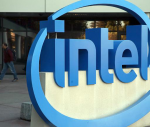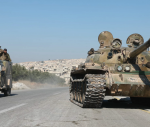You are here
Even recapturing Mosul and Raqqa will not make Daesh fade from the scene
Nov 09,2016 - Last updated at Nov 09,2016
At long last the campaign to drive Daesh from Raqqa, the cult’s self-proclaimed capital, has begun.
Daesh seized this north Syrian city from Al Qaeda’s Jabhat Al Nusra and groups claiming affiliation with the Free Syrian Army in January 2014.
Until insurgents captured Raqqa during the summer of 2013, the city with a population of 220,000 had been regarded by both sides as a safe haven for Syrian civilians displaced from battlefronts.
Anti-government groups violated the informal understanding to grab Raqqa for its strategic and historic value.
Raqqa is strategic because it is located at the centre of the country, 103 kilometres from Turkey, the main route for external fighters, funds and arms for Daesh.
Raqqa is historic because during the reign of Abbasid Caliph Haroun Al Rashid, the Golden Era of Islamic civilisation, the city served as his summer capital from 796-809.
The Raqqa campaign became inevitable once the Iraqi army and allied forces launched their offensive against Daesh-held Mosul in northern Iraq.
The US came under heavy pressure to coordinate the two-pronged attack mounted by its Iraqi and Syrian allies as it became necessary to deny Daesh commanders and fighters refuge in Raqqa once the Mosul campaign commenced.
The Raqqa offensive, dubbed “The Wrath of the Euphrates”, has been launched from locations 50 kilometres to the north.
The first phase involves the isolation of Raqqa by seizing the nearby countryside; the second phase will be an assault from multiple directions.
During the offensive, the attacking Syria Democratic Forces (SDF) will have cover from US and Western aircraft.
The Iraqi army and its militia allies have been eager for some time to begin the liberation of Mosul, but the SDF, the formation chosen by Washington for the task, have expressed reservations.
Some 20-25,000 of its 30,000 plus fighters are Kurdish militiamen from the People’s Protection Units, the military arm of the Syrian Kurdish Democratic Union Party, affiliated with the Turkish Kurdish Workers’ Party, now in open revolt against Ankara.
The Kurds have been reluctant to attack an Arab city since this could create an ethnic backlash. So, the US has recruited Arab fighters, particularly from tribes persecuted and slaughtered by Daesh, Assyrian and Armenian Christian militiamen and Turkmen and Circassian elements who, to a certain extent, dilute Kurdish dominance in the democratic forces.
As in Iraq, the US has also deployed its own special forces and provided its allies with guns, anti-tank weapons and equipment.
Also as in Iraq, the attacking forces have the advantage of numbers.
It is said that there are some 5,000 Daesh fighters in Raqqa, but their strength may have been bolstered by senior commanders and militiamen fleeing from Mosul in recent weeks.
The beginning of the Raqqa offensive coincided with discussions between US military chief Joseph Dunford and his Turkish counterpart General Hulusi Akar.
Ankara, which has troops and tanks on the ground in Iraq and Syria, insists on participating in both offensives, but the US has managed to restrain the Turks so far.
US Defence Secretary Ashton Carter has, apparently, assured Turkey that it would take part in the Mosul operation despite Baghdad’s angry rejection.
Washington is playing both sides with the aim of keeping the peace among its allies during the Mosul and Raqqa offensives.
The Turks have, in particular, objected to the main role in the Syrian campaign given to the heavily Kurdish Democratic Forces, considered “terrorist” by Ankara.
On occasion, Kurdish men and women have been bombed and shelled by the Turkish army.
There are reports that the US has agreed that Turkish-backed Syrian Free Army fighters would be employed in the occupation of Raqqa after the offensive, but this would be a major mistake.
Turkey, which has territorial claims in both Syria and Iraq, could use them as a fifth column to stake its claim or to mount attacks on Syrian government forces.
Turkish President Recep Tayyip Erdogan has shown his determination to intervene in Syria by stating that Turkey’s surrogates will move against Daesh in Al Bab, a strategic town 30 kilometres south of the Turkish border, 55 kilometres northeast of Aleppo and 182 kilometres west of Raqqa.
Since Al Bab is closer to Aleppo, Erdogan might have in mind intervention in the ongoing battle for the nearby insurgent-held eastern quarters of that city rather than in the campaign for more distant Raqqa.
Turkey has already taken control of the Syrian towns of Jarablus and Al Rai and has 500 troops based near Bashiqa, in the Kurdish autonomous region of Iraq.
Peshmerga militiamen dispatched by the regional government, which has had good relations with Ankara, have recaptured Bashiqa, 13 kilometres northeast of Mosul, from Daesh.
Since the Kurds recaptured Bashiqa, located on the edge of their region, in one day’s fighting, the question must be asked why did they wait for more than two-and-a-half years to secure the town, since it is next to a military airport where Turkey has troops and tanks?
Daesh’s loss of Raqqa and Mosul will not mark the end of the fight in Syria and Iraq.
The cult will still have control of most of the Syrian province of Deir Ezzor and of the city of Hawija in Iraq.
Presumably, these locations will be the next targets for US-sponsored forces if Daesh is to be uprooted from these two countries.
Once that achieved, Daesh will lose its main territorial base in the Mashreq, the eastern Arab world.
However, Daesh leader Abu Bakr Al Baghdadi has made it clear that the cult will not fade from the scene.
He has called upon followers to “unleash their anger” on Turkey, which has belatedly blocked supply routes, and to mount “attack after attack” on Saudi security forces and members of the ruling family for allying with “the infidel nations in their war against Islam”.
He also called upon militants in the 13 countries where Daesh has provinces and affiliates to wage war on the world.













